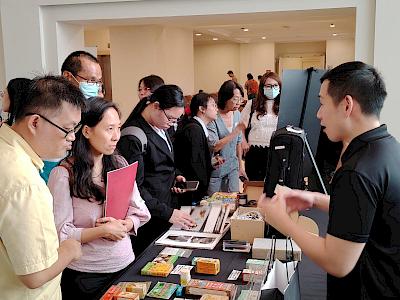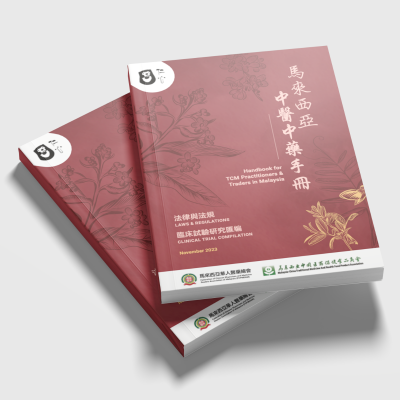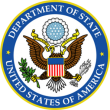Kind Hearts: New initiative with Traditional Chinese Medicine industry associations encourages wildlife protection
An initiative with kindness and respect for all life at its heart has reached thousands in the Traditional Chinese Medicine (TCM) community in Malaysia where it is urging practitioners, traders, and consumers to avoid using ingredients from endangered or protected wildlife.
The “Ren Xin” (Kind Heart) initiative addresses the use of locally or internationally protected and threatened species in the local TCM industry.

It raises awareness about the negative impacts on wild species and risks to anyone buying and selling protected wild species for use as medicine.
From talks to university students studying TCM, to exhibitions and outreach through influencers and social media networks, the initiative has employed a wide range and mix of methods with positive results.
A recent TCM conference that brought together industry members and government agencies to provide clarity on wildlife and healthcare laws, permits and registration requirements, was oversubscribed.
A total of 105 industry participants spanned the gamut of the TCM industry from physicians to importers and distributors, and they came from across the country.
They heard from and had the opportunity to interact directly with 15 representatives from the Department of Wildlife and National Parks Peninsular Malaysia (PERHILITAN), government agencies under the Ministry of Health including the National Pharmaceutical Regulatory Agency (NPRA), Traditional & Complementary Medicine (T&CM) Division, and the Pharmacy Enforcement Division (PED).
The conference and the wider initiative have been strongly supported by two major industry associations – the Federation of Chinese Physicians and Medicine Dealers Associations of Malaysia (FCPMDAM) and The Malaysia-China Chamber of Commerce for Traditional Medicines and Health Products (MCMH).
FCPMDAM is an umbrella federation consisting of 44 TCM associations, with more than 7,000 TCM practitioner and trader members throughout Malaysia. MCHM meanwhile counts over 100 traders, manufacturers, and distributors among its members.
“The resources of animals and plants used by traditional Chinese medicine practitioners and herbalists are precious treasures of nature. Therefore, we are also concerned about ecological diversity and sustainability,” said Dato Ho Teck Keun, MCMH President.
“If natural resources are overexploited, the traditional Chinese medicine industry will be the first to suffer when losing valuable medical resources,” he added.
&ab_channel=TRAFFICInternational

A flagship publication of this initiative – TRAFFIC’s comprehensive reference Handbook for TCM traders and practitioners - was very much in demand.
This is the first such publication for the TCM industry in Malaysia. It lists clinical trial studies of effective alternative TCM formulations that do not contain Protected and Threatened species and provides clarity on the laws and regulations governing wildlife ingredients in the practice of TCM.
On the issue of alternatives, Dr Ho Sin Khee, Secretary General of TCM Rights Watch said: “As TCM practitioners, we constantly look for alternatives. There are many ingredients in TCM that that have the same effect, why not replace them [endangered wildlife] with other medicines, especially sustainable botanical medicines.”
The Handbook and a suite of other resources are available on the newly launched microsite healersforthewild.com, which also serves as a repository for all updates from the initiative. The website has seen 31k visitors since it was launched in March 2024.
“We have engaged the Malaysian TCM industry for some time now and wanted to develop practical guidance for making their business and practice more nature positive, instead of just giving them a long list of don'ts,” said Leslie Tsen, TRAFFIC’s Programme Officer behind the implementation of the initiative.
“The feedback and input from industry experts has been immensely valuable to shape the initiative and help us open minds to a different way of thinking,” Tsen said.
TRAFFIC’s engagement with Malaysia’s TCM industry started over a decade ago, stemming from bear bile trade research, followed by the 2017 TCM conference on bear bile substitutes jointly organised with FCPMDAM.
“Under this project, we have been able to foster stronger – and new - relationships with strong partners in the sector to find solutions for this complicated issue," added Tsen.
Notes:
This initiative is part of a project generously funded by a grant by the United States Department of State, Bureau of Oceans and International Environmental and Scientific Affairs.
Bureau of Oceans and International Environmental and Scientific Affairs (OES)

The Bureau of Oceans and International Environmental and Scientific Affairs—often referred to as “Oceans, Environment, and Science” or simply “OES”—covers issues that reach from the vastness of space to the depths of the oceans. Created by Congress in 1973 and formally established by the Department the following year, OES works to ensure economic growth and a healthy planet go hand in hand. OES website





